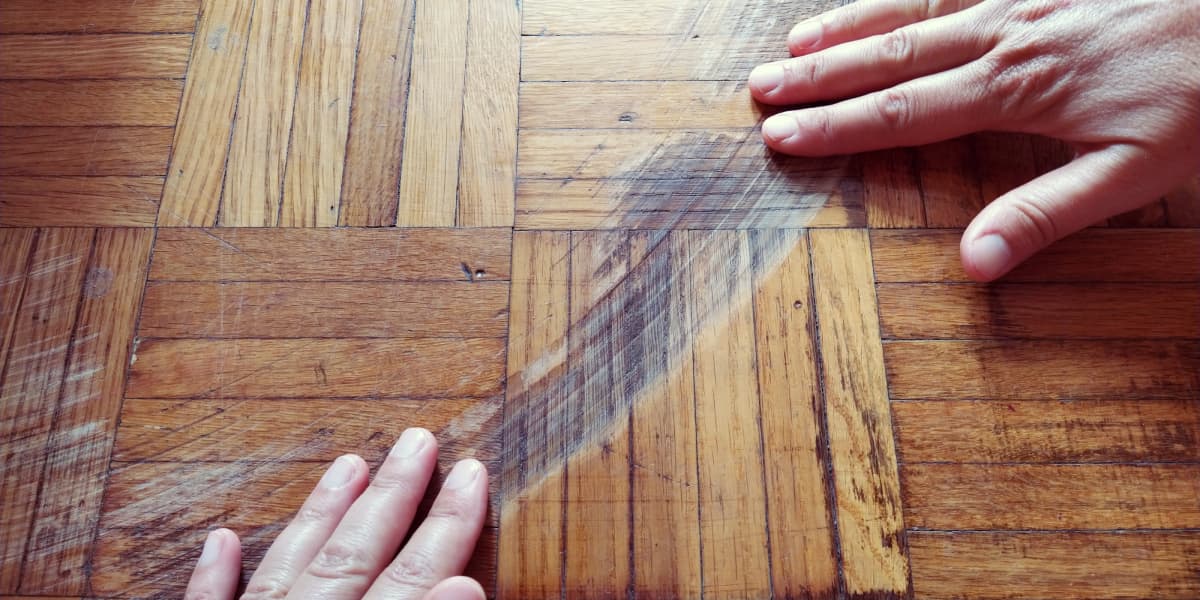Published on October 25th, 2022
Last updated on February 3rd, 2023
How To Clean Vinyl Plank Floors
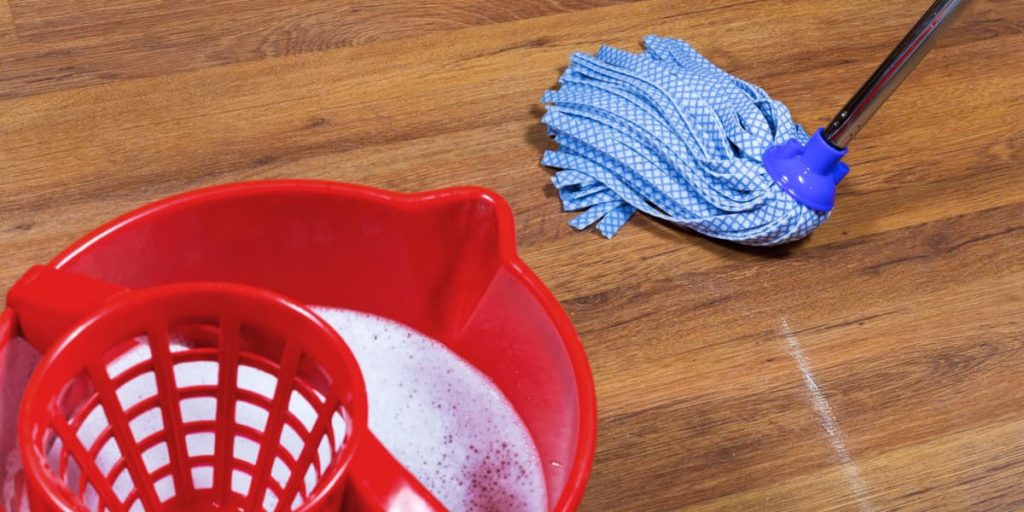
An elegant floor in the house is always an important design component. However, it should have not only aesthetic properties and please the eye but also be functional. You should be comfortable walking, the floor should not creak or crack, and your children should be sure they will not slip on it and fall.
One such option is vinyl flooring. Although this type is quite attractive, reliable, and durable, it still needs regular care and support. For example, this type of floor must be cleaned regularly. Many people think it is enough to walk with a mop a couple of times and remove all the dirt, but this is not how things work. Vinyl plank floors need to be cleaned appropriately using household products like apple cider vinegar, WD-40, or even baking soda.
This article will tell you how to clean a vinyl floor properly, what tools you need, and how you can clean annoying stains and traces of various sauces. We’ll also discuss common mistakes when cleaning your vinyl floor and help you avoid them in the future. Stay with us and get invaluable knowledge.
How to Keep Vinyl Floor Fresh?
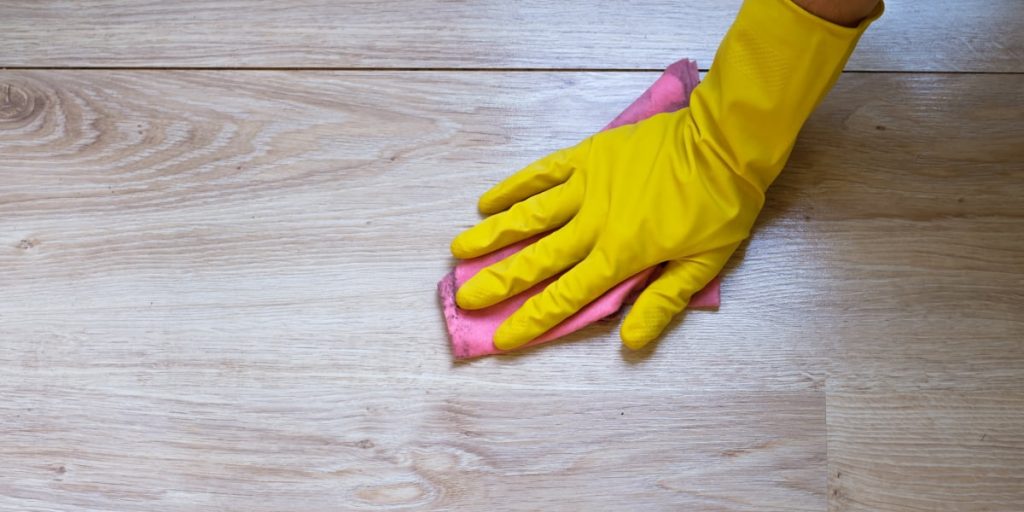
Many people think that simply cleaning the dirt with water and a mop is enough, and they will be right, but you should read this block to the end to become the best at cleaning vinyl plank floors and maintain its attractiveness and integrity:
- Before wet mopping, always use a broom or dry mop to remove any hair, dust, or other dry debris. This will help you avoid getting any wet debris stuck between joints or under furniture.
- Use apple cider vinegar as a vinyl floor cleaner. So, this product is one of the best because it does not leave visible marks on the surface like soap or other cleaning products do. It is enough to mix a cup of apple cider vinegar with a gallon of water and do wet cleaning.
- If your floor has stubborn product scuffs, you can always use radical tools like WD-40. You can scrub scuffs of any nature with this product.
- Baking soda combined with water will help you get rid of traces of:
- Mustard.
- Ketchup.
- Tomato sauce.
- Grape juice.
- However, after cleaning, be sure to wipe the floor again with a wet cloth to remove traces of soda. If you have a small child who decides to create a new piece of art on the floor and draw something, you can always use rubbing alcohol for cleaning. It does a great job cleaning up pencils, markers or paint marks.
Common Mistakes When Cleaning LVP Flooring
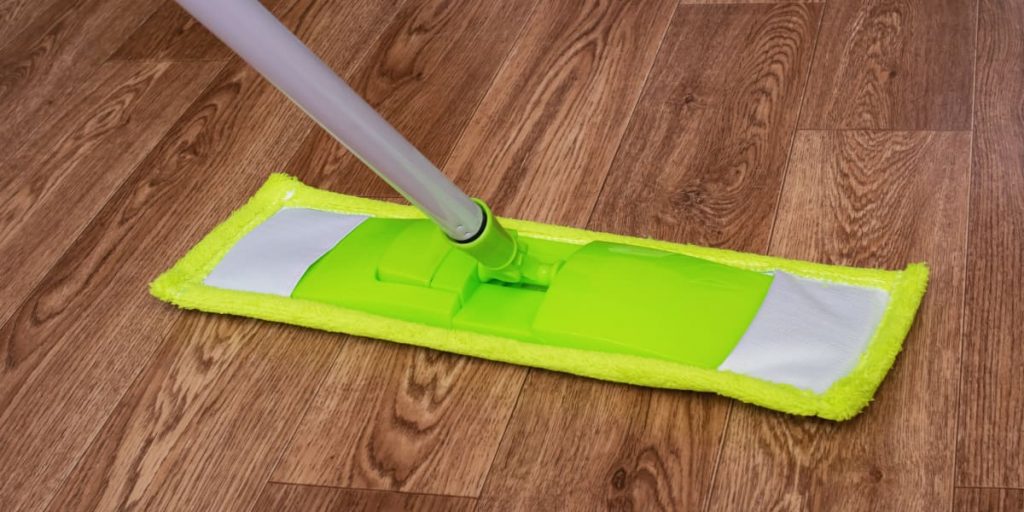
You may not want to take our piece of advice and want to use alternative methods for cleaning your vinyl plank floor, but we advise you first to read the do’s and don’ts section before you get started. So, you are prohibited from:
- Cleaning LVP flooring with harsh chemicals since can severely damage the material and destroy its integrity. So, it’s best to avoid ammonia-based cleaners or other harsh cleaners.
- Using steel wool or other tools that have a rigid base. This may scratch the floor surface.
- Washing the floor with products that can leave a film on the floor surface. Such products often include soapy detergents, abrasives or shine products.
- Using paste wax or solvent-based polishes.
If you avoid the products mentioned above, your vinyl floor will stay fresh and beautiful for a long time.
How to Prevent Vinyl Floors from Being Damaged?
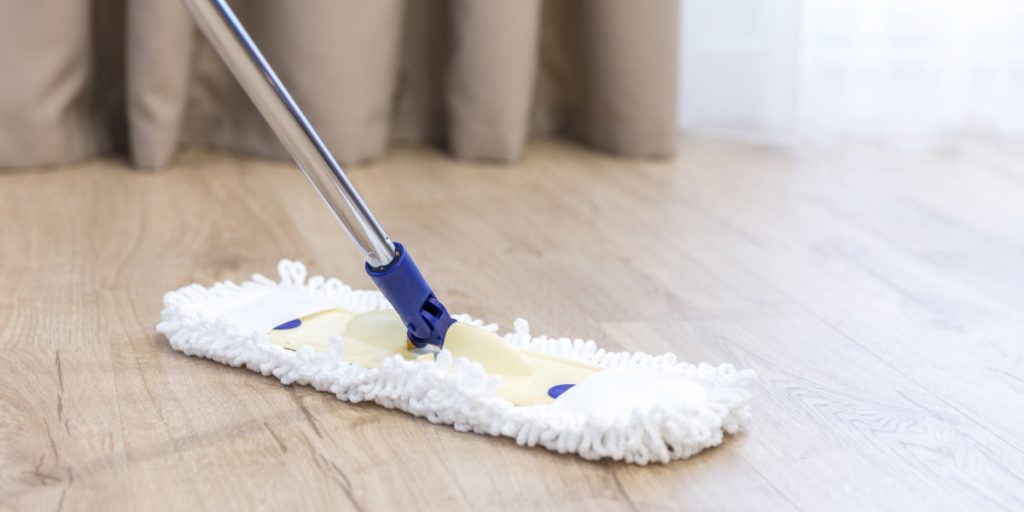
However, high-quality cleaning with the right products cannot ensure your floor’s exceptional longevity and reliability if you do not take extra care of it. So, you need to create certain conditions to prevent floor damage. Such measures include:
- Regular floor cleaning. Of course, you shouldn’t mop your floor every day, but wet mopping three times a week will do the trick and keep your floor intact and safe. Regular cleaning of LVP flooring prevents serious stains and scuffs.
- Using a rug at the entrance to the house. Place a quality rug at the entrance to your home. The rug will collect all the debris, sand and dirt from your feet and will not allow it to appear on the floor. This is necessary so that even the slightest grain of sand cannot damage the surface of your floor by constantly wiping it.
- Thinking ahead. If you’re planning renovations to your home or want to move furniture, make sure your floor stays intact. In this case, always use a sheet of plywood on which you will place your furniture when moving. This approach will help you protect your floor from scratches and scuffs.
In addition to the above methods of protecting your floor, you can also further protect the integrity of your vinyl flooring. So, try not to run and jump, as this creates unpleasant dents over time. It is also a great option to take off your shoes before entering the house so that the shoes cannot damage the floor.
By following just a few simple tips, you are guaranteed to keep the integrity of your floor for many years to come.
Bottom Line
Vinyl plank floors are an excellent option for those who want the look of hardwood floors without the high price tag. LVP flooring is also easy to maintain and can be cleaned with just a few simple steps. Follow the tips above, and your vinyl plank floors will look beautiful for years to come.
FAQ
How often should I clean my vinyl plank floors?
You should generally clean your vinyl plank floors at least once a week. However, if you have pets or high-traffic areas in your home, you may need to clean them more frequently.
What is the best way to clean vinyl plank floors?
There are a few different ways to clean vinyl plank floors, but one of the most effective methods is to use a damp mop or cloth and a mild soap or cleaning solution. You can also vacuum your floors regularly to help keep them free of dirt and debris.
Can I use a steam cleaner on my vinyl plank floors?
Yes, you can use a steam cleaner on vinyl plank floors. However, you should avoid using too much steam or water, damaging the floors.
What are some common cleaning mistakes people make with vinyl plank floors?
Some common mistakes people make with vinyl plank floors include using harsh cleaning chemicals or abrasive scrubbing pads, which can damage the flooring. Additionally, people sometimes forget to vacuum or sweep their floors regularly, allowing dirt and debris to build up over time and eventually cause damage.


